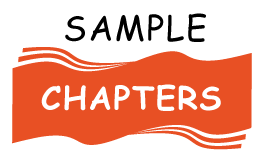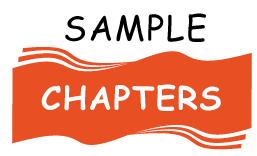E-books and Digital Reading, Print-on-Demand (POD) Services: Revolutionizing the Publishing Industry

The publishing industry has undergone a dramatic transformation over the past decade, driven largely by the rise of e-books, digital reading, and print-on-demand (POD) services. These innovations have democratized access to literature, enabling authors to reach global audiences and readers to enjoy a vast array of content with unparalleled convenience. This article explores the impact of e-books, digital reading, and POD services on the publishing industry, highlighting key benefits and trends shaping the future.
The Rise of E-books and Digital Reading
1. Accessibility and Convenience
E-books have revolutionized the way people read, offering unparalleled accessibility and convenience. With e-books, readers can carry entire libraries on their digital devices, such as e-readers, tablets, and smartphones. This portability allows readers to enjoy their favorite books anytime, anywhere.
2. Cost-Effectiveness
E-books are often more affordable than their print counterparts due to lower production and distribution costs. This affordability has made reading more accessible to a broader audience, encouraging more people to explore diverse genres and authors.
3. Instant Availability
Digital reading eliminates the wait time associated with traditional book purchasing. Readers can instantly download e-books from online platforms like Amazon Kindle, Apple Books, and Google Play Books, allowing for immediate gratification and uninterrupted reading experiences.
4. Enhanced Reading Experience
E-books offer features that enhance the reading experience, such as adjustable font sizes, built-in dictionaries, and interactive content. These features cater to individual preferences and needs, making reading more enjoyable and accessible to people with visual impairments or learning disabilities.
The Impact of Print-on-Demand (POD) Services
1. Reduced Waste and Environmental Impact
Print-on-Demand (POD) technology has significantly reduced waste in the publishing industry. Traditional publishing often results in large print runs and unsold inventory, leading to waste. POD, on the other hand, produces books only when an order is placed, minimizing waste and reducing the industry's environmental footprint.
2. Cost-Efficiency
POD services eliminate the need for large upfront investments in printing and inventory. Authors and publishers can produce high-quality print books without the financial risk associated with traditional publishing. This cost-efficiency makes it easier for independent authors and small publishers to enter the market.
3. Customization and Flexibility
POD services offer a high degree of customization and flexibility. Authors can choose from various formats, sizes, and binding options to create books that reflect their unique vision. Additionally, POD allows for quick updates and revisions, ensuring that the latest version of a book is always available.
4. Global Distribution
POD services, in conjunction with online marketplaces, provide global distribution capabilities. Platforms like IngramSpark and Amazon KDP Print enable authors to reach international audiences without the logistical challenges of traditional distribution. This global reach expands the potential readership for authors and increases their chances of success.
Key Trends Shaping the Future of E-books and POD
1. Integration of Multimedia
The future of e-books is likely to see greater integration of multimedia elements, such as audio, video, and interactive graphics. These enhancements will create more immersive and engaging reading experiences, particularly in genres like educational materials and children's books.
2. Personalized Reading Experiences
Advancements in artificial intelligence and data analytics are paving the way for personalized reading experiences. E-book platforms can analyze reader preferences and behavior to recommend tailored content, enhancing reader engagement and satisfaction.
3. Expansion of POD Services
The expansion of POD services is expected to continue, with more authors and publishers adopting this model. Innovations in POD technology will further improve print quality and reduce production costs, making it an even more attractive option for the publishing industry.
4. Sustainability Focus
As environmental concerns grow, both e-books and POD services will play crucial roles in promoting sustainability in the publishing industry. The reduced waste and lower carbon footprint associated with these technologies align with the increasing demand for eco-friendly practices.
Conclusion
E-books and digital reading, coupled with print-on-demand services, have revolutionized the publishing industry, offering numerous benefits for authors, publishers, and readers. These technologies have made literature more accessible, affordable, and environmentally sustainable. As innovations continue to shape the future, the publishing industry will evolve to meet the changing needs and preferences of its audience. At SampleChaps.com, we are committed to staying at the forefront of these trends, providing our users with the latest insights and tools to navigate the dynamic world of e-books and POD services.
For more information on self-publishing platforms, read our detailed guide: Navigating the World of Self-Publishing Platforms: A Comprehensive Guide.



